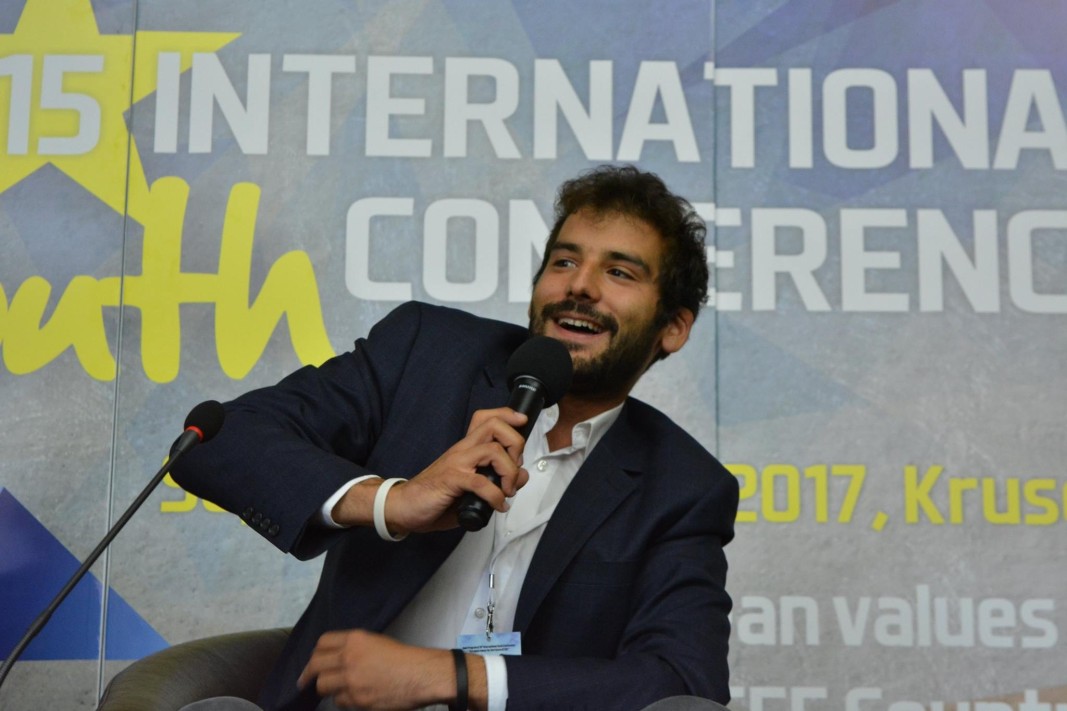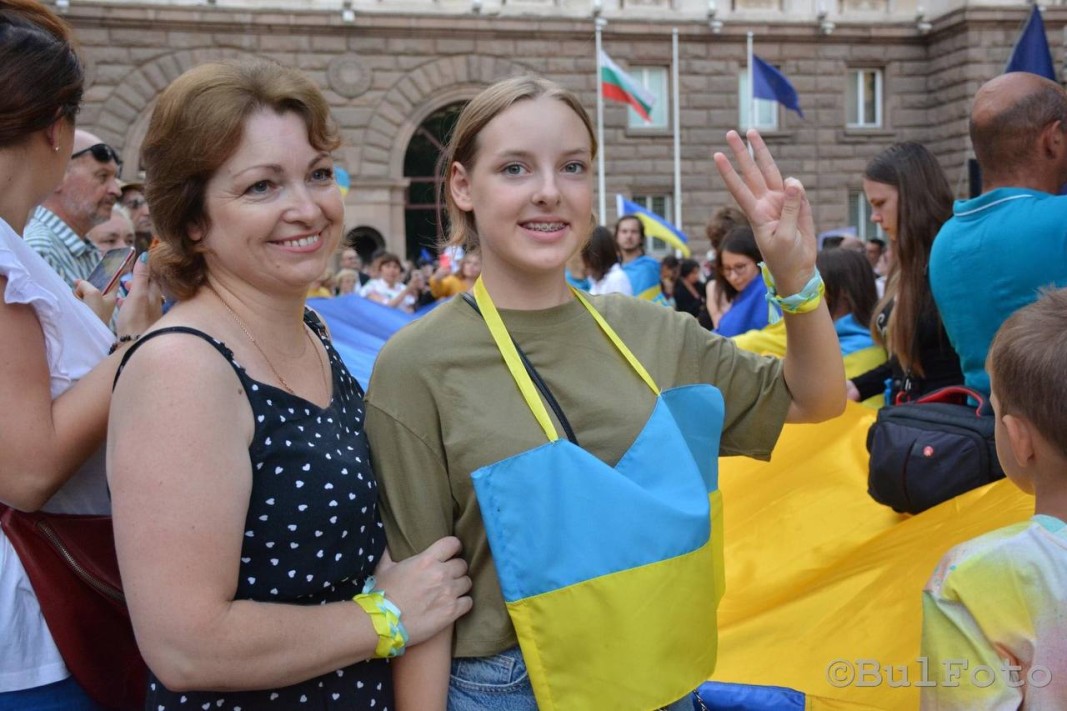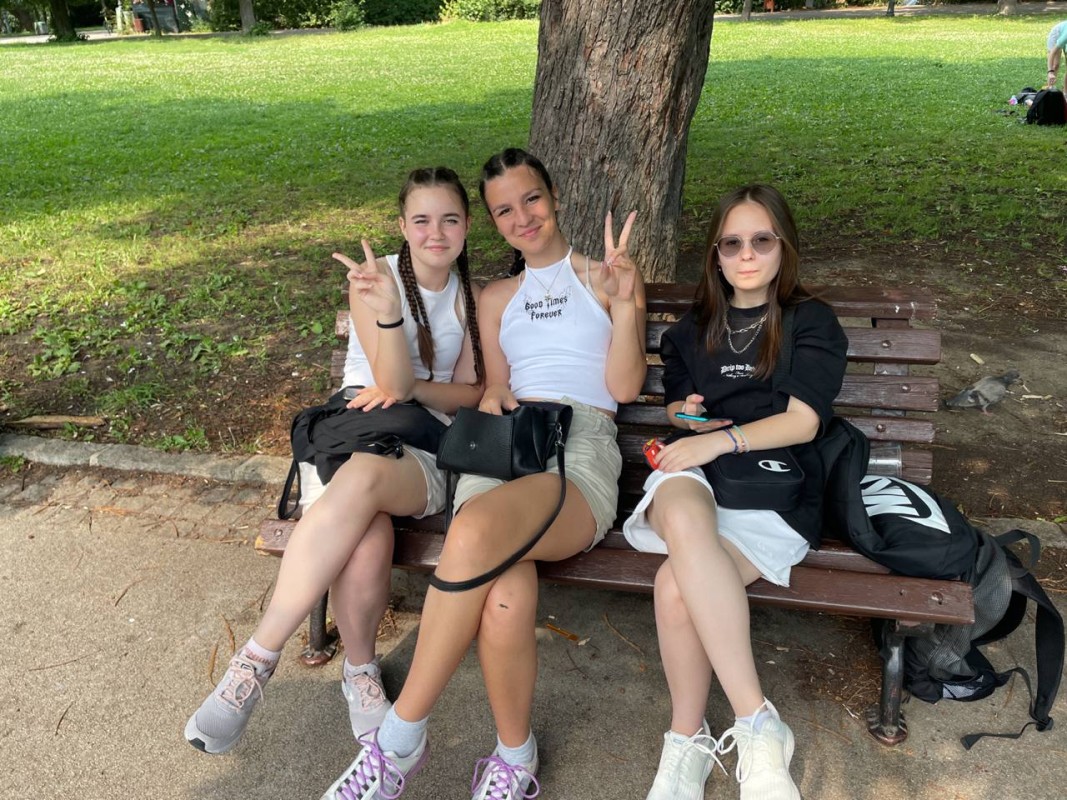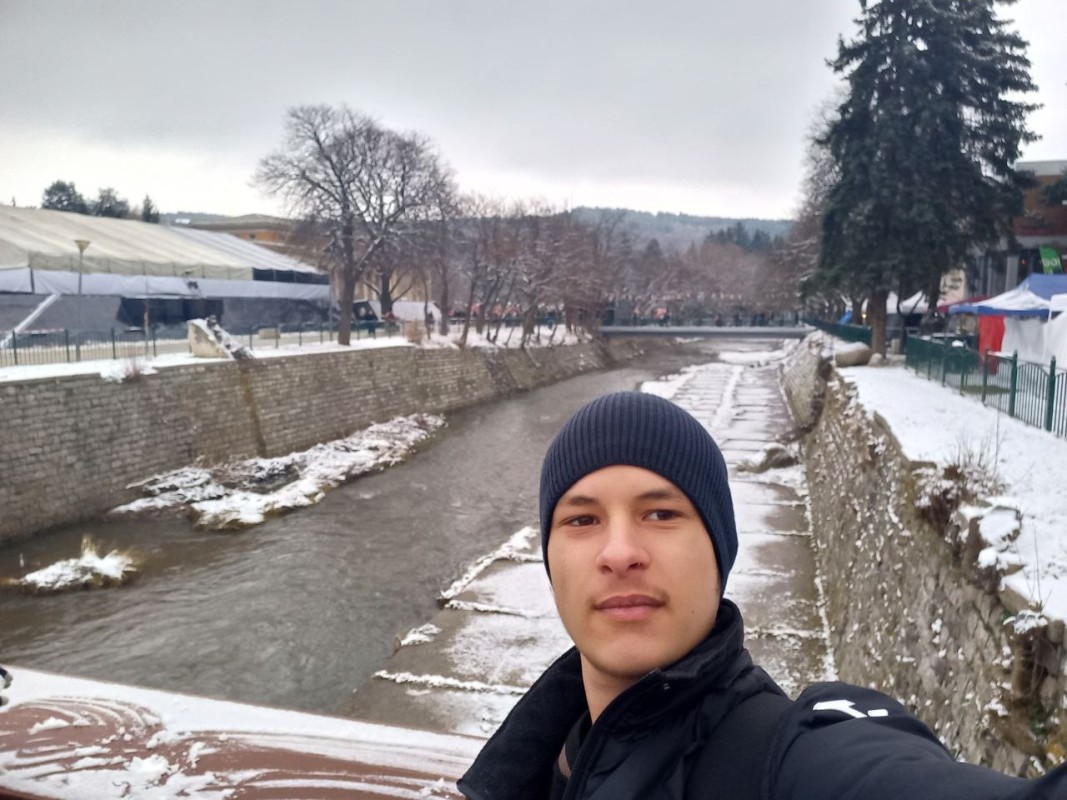A hug can be a gesture from the universal language of empathy, understanding and support, it can dissuade or motivate us to make one decision or another. But for some, it can be a lifeline, a safe haven where they can feel protected and safe, albeit for a brief spell in time. Arms Wide Open is a Bulgarian association that provides just such a safe haven. Set up more than a year ago, a little after the start of Russia’s war in Ukraine in February 2022, the association brings together people from Russia, Moldova and Ukraine, for whom helping people in need comes first. One of their initiatives is connected with summer classes for children aged 6 to 17, where they can study or improve their Bulgarian language skills.
The afternoons are set aside for outings, trips to different locations so they can come in contact with Bulgarian nature and get to know the country’s history, traditions and culture. The aim is to help these children, who have been forced out of their countries, to spend a summer that will touch their hearts, leaving a memory for many years to come.
“96 children attended the summer school last year, and this year their number is 115, about a dozen are refugees from Syria, Iran and Iraq,” said Dimitar Dimitrov from the association in an interview with Radio Bulgaria: 
“They are very well received by the Ukrainian majority at our summer school. It gives us such pleasure to see how tolerant, how willing to accept and to help these children can be, some of whom don’t speak Bulgarian well enough yet. This is the place to say that our team of Bulgarian language teachers and the pedagogues organizing the afternoon programme are an incredible mixture of inspired individuals who are doing their very best.”
The children frequently surprise them with their creativity and teamwork. This is the kind of synergy the kids demonstrated during a special event in Sofia, at which they presented the most important landmarks in the Ukrainian cities where they were born – Odessa, Kharkiv, Kherson, Melitopol, Kyiv, Donetsk etc. 
“I’ve been here since March last year,” says teenager Tetyana Malanchuk. “I’ve been in Sofia the whole time and I really love the city, its atmosphere, and I have to admit it reminds me of my home town Kherson. I haven’t been to a Bulgarian school, so I don’t know much about Bulgaria’s history. I know Levski is a revolutionary, and I have been to the museum dedicated to him in Lovech. I know there’s a football team named after him.”
Viktoria Aksionenko is from Melitopol, and she knows there are Bulgarians living in her town, though she says that, unfortunately, she doesn’t know many of them:
“I know very little about the Bulgarian diaspora, and when I had to make a presentation about our city, I found out that in the city, out of respect and with Bulgarian funding, a monument to Hadji Dimitar has been built. They have a newspaper where they discuss all kinds of things, though I don’t know much more.”
She says what impressed her most when she arrived in Sofia were its many museums. She says her favourites are the museum of illusions and the National Palace of Culture - a park and a cultural hub, which all three people we talked to say they like. 
One of them, Maksim Didenkul is from Odessa, his mother is a Bessarabian Bulgarian, but he didn’t know much about this community except that it is big and very close-knit. One of his favourite spots in the Bulgarian capital is North Park, and the reason for this is that:
“There are very few people there, you can take a walk there and reflect, and listen to the birdsong. Otherwise, in Pernik we went to a wonderful festival, Surva. I’ve been to Varna, I really liked it there too.”
All three people from Ukraine we talked to say they would like to stay in Bulgaria when the war in their country is over. Hearing this, Dimitar Dimitrov says:
“When I see children of different ethnicity and religions share and learn from one another I see how much sense there is in what we are doing every day of this hot summer,” he says. “When you are working with people you always try to help them become the best possible version of themselves. It is so satisfying to help them hone their skills, work on their weaknesses without being afraid of them. It is important to me to help these children understand that Bulgaria will be their home even when the war is over, and that they will have the choice of returning to Ukraine, or making Bulgaria their home from home.”
Translated and posted by Milena Daynova
Photos: courtesy of Dimitar Dimitrov, Arms Wide Open
The Bulgarian Sunday School "Asen and Ilia Peykovi" in Rome is inviting participants to an online seminar themed "Biserche Valshebno". The event, taking place on March 22 and 23, is a continuation of the discussions that emerged during the Second..
"It all started on a March evening in 2007 when 2 million people and 2,000 companies in Sydney (Australia) turned off their lights for one hour – from 8:30 PM to 9:30 PM – to show that they care about nature and the climate. Back then, no one could..
Concert in North Macedonia turns into tragedy A nightclub fire tragedy left North Macedonia in grief. A concert by the popular hip-hop group DNA, which was supposed to become a celebration in the small town of Kočani, turned into a true..

+359 2 9336 661
